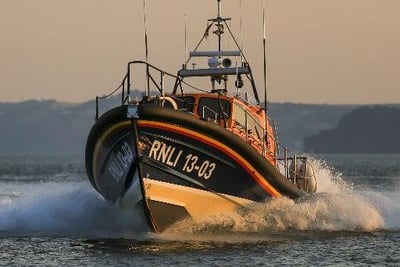The RNLI have warned members of the public about dangerous sea conditions as we approach colder months.
"As we approach the winter," said an RNLI spokesperson, "the sea conditions become increasingly dangerous. Storms that hit the south west coastline cause big swell which heighten the risk for those going in the sea."
In partnership with local authorities and private beach owners, the RNLI is able to provide lifeguard cover on a number of beaches later into the season, enabling people to enjoy the water safely in the autumn. The patrolled beaches are spread geographically around the south west coast, to enable people to choose a lifeguarded beach near to them.
Guy Botterill Regional Lifeguard Lead said:
"This time of year, the water is at its warmest and we tend to see an increase in swell, meaning bigger, more consistent waves, but this can also increase the frequency and power of rip currents.
"As we reach the October half term with patrols ending on the beaches next weekend, we urge people to make best use of the beaches which still have RNLI lifeguard patrols and choose to visit one of these.
"The lifeguards on duty can advise on local hazards and continually assess the conditions throughout the day positioning red and yellow flags in the safest area to swim and black and white flags in the safest area to surf."
The organisation has stressed that residents and visitors should never go to the beach alone. If visiting the beach outside of the lifeguards’ patrolling hours or visiting a non-lifeguarded beach, you should make sure you’re with someone who is carrying a mobile phone so that you can call for help should you need it.
A spokesperson continued: "If you go in the sea and find yourself in a rip current, don’t fight against it. If you can stand, wade do not swim to shore. If you can’t touch the floor and have the energy, swim parallel to the shore until you are out of the current.
If you don’t have the strength to swim, preserve your energy by floating, the RNLI’s "Float to Live" advice is:
· Tilt your head back with ears submerged
· Relax and try to breathe normally
· Move your hands to help you stay afloat
· It’s okay if your legs sink, we all float differently
· Spread your arms and legs to improve stability
If you get into trouble or see anyone else in difficulty along the coast, call 999 or 112 and ask for the Coastguard.




